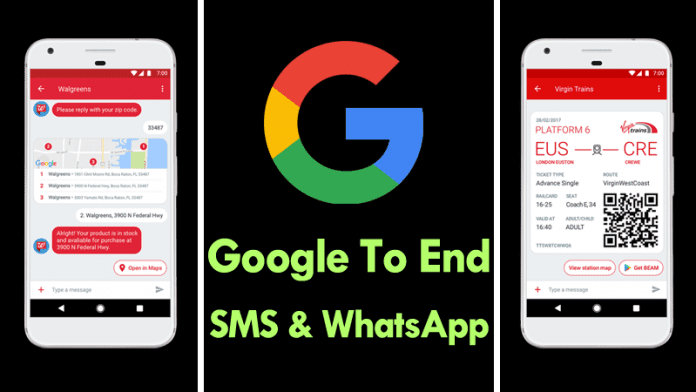In the framework of the Mobile World Congress in Barcelona, a step forward has been taken in regard to the RCS protocol (enriched communication services), a technological effort born to end the already dead SMS and try to take away the prominence of Applications such as WhatsApp or Telegram, the main enemy of mobile operators. The standard RCS is the natural evolution of text messages, a development shaped in previous years and now has the momentum and support of all the major operators in the world, which has been added Google. The RCS standard offers advantages of instant messaging services such as group chat, high-resolution image sharing, video, documents and VoIP calls, but it has a great unmistakable advantage over WhatsApp or Telegram: it does not require an Internet connection. The GSMA has been present at the Mobile World Congress where they have agreed to transition to a universal communication profile based on the GSMA’s RCS, and Google will have a leading role because it will promote a universal customer RSC Integrated into Android. The purpose of RSC is to provide an open and consistent messaging service through Android devices. Here are the following OEMs those have already agreed to preload the new Android Messages instead of using a custom application:- Nokia, Micromax, LG, LeEco, Cherry Mobile, HTC, ZTE, Motorola, Sony, Archos, BQ, Condor, Fly, General Mobile, Lanix, Lava, Kyocera, MyPhone, QMobile, Symphony and Wiko, along with Pixel and Android One devices. While some of the mobile operators that are part of this important association interested in promoting CSR include America Movil, Vodafone, Deutsche Telekom, Orange, Sprint, Telenor Group, TIM, VimpelCom, Bharti Airtel, Etisalat, Millicom and MTN. The standard RCS deployment has already been implemented in 34 countries by 47 different operators. They can choose to deploy their own infrastructure or make use of Google’s Jibe platform.
Δ


